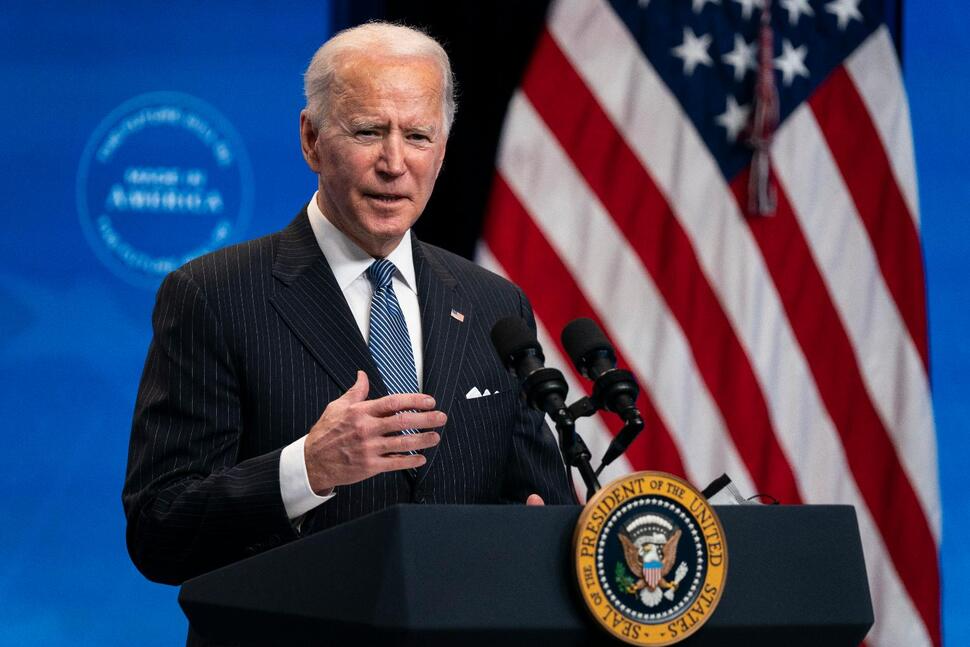U.S.: A Challenging Year Ahead
January 6, 2024 | Expert Insights

As the United States gears towards the 2024 presidential elections, the Biden administration’s foreign policy on key issues stands to be tested amidst opposing views.
Wars overseas, like in Ukraine and Gaza, have brought U.S. foreign policy into public focus, a major development for a nation that is more insular in its outlook domestically; more importantly, foreign policy could be a winning or losing factor in the forthcoming elections.
A much-publicized poll revealed that more Americans think foreign policy should be a top priority for the U.S. government in 2024 amidst growing concerns about international issues. From the Middle East to Ukraine and China, the elections will bring competing viewpoints on the U.S. approach to the fore.
Background
In the poll mentioned above, around 4 in 10 American adults mentioned foreign policy issues when asked to share up to 5 issues they thought the government should focus on in 2024. This is twice as many who mentioned foreign policy topics in the same poll in 2022. While economic concerns are still dominant, the new poll reveals increased concern over the U.S. role overseas – 20 per cent expressed this as compared to 5 per cent in the 2022 poll. Foreign policy has also prompted political debate in both parties. 46 per cent of Republicans mentioned it in the poll, and 34 per cent of Democrats called it a focal issue. This is around double the number from both parties that mentioned it last year.
The Hamas attack and Israel’s war on Gaza have divided views across the world, including in the American public - most visibly in its colleges, as witnessed in the recent Harvard University furore. As 2024 opens with this heightened focus on foreign policy, the Biden administration faces several challenges in this domain.

Analysis
A major Republican point of critique against the Biden government is its “soft” stance on China. While both parties favour a tough approach towards China, the Biden government’s policy is to invest in the U.S., align with U.S. allies (particularly in Europe), and compete with China. Biden's government has continued Trump's tariffs on China but focused on technology competition and national security. Increased restrictions in this field, such as the recent export controls on advanced chips to China, seek to curtail its access to critical technologies. Yet, as witnessed in its high-level diplomatic visits to Beijing, the Biden government has been careful to avoid escalating tensions with China. This could prove to be a contentious issue as the Republicans challenge the Biden government's ability to deal with the issue China poses - particularly in economic terms.
Finally, there is Taiwan, where presidential elections in mid-January may trigger a response from China. Aggressive actions by Beijing against Taiwan, even if they are shy of using force (such as interrupting critical supply lines), could push Washington to respond.
The carnage in Gaza, combined with the global controversy it has generated, has upped the ante for U.S. diplomacy in the Middle East. Apart from supporting Israel, Biden’s immediate goal has been to ensure the war does not escalate into a region-wide conflict. However, the threat of escalation persists with Iran's involvement in the Houthi missile and drone attacks on merchant ships in the Red Sea, as well as Hezbollah launching rocket and missile attacks into the north of Israel. Israeli retaliation against targets deep inside Syria and Lebanon does not help matters either.
With the rest of the Middle East standing with Gaza, the U.S. will have to show that it can work with Israel, Egypt, and other actors in the region to prevent the conflict from widening. Further, U.S. support for Israel is coming under increased public pressure as the Gaza toll of women, children, and non-combatants makes headlines, and this could prove to be a contentious point in the elections.
Ukraine poses an uncertain challenge for this year. Since Russia’s invasion two years back, the Biden government gathered a substantive coalition in support of Ukraine and imposed severe economic and financial sanctions on Russia. With Western support, Ukraine’s resistance resulted in Russia’s invasion turning into a strategic failure.
However, growing Republican opposition to further military or economic aid for Ukraine is proving to be a challenge. Though Biden has vowed to continue support for Ukraine, this could become a contentious issue. Similar to the "Ukraine fatigue" that is setting in Europe, the Ukraine issue could become another contentious one leading up to the election. Yet, if U.S. military support for Ukraine falls short, Ukraine may find it difficult to hold its front against Russia, given that more than half of its military aid has come from across the Atlantic; its ability to resist Russia's onslaught significantly depends on continued U.S. support. If Ukraine’s defence subsequently caves in, the blame would squarely be put on the Biden Administration.
Assessment
- With U.S. foreign policy in the spotlight in 2024 and the upcoming presidential election, the Biden government may have to navigate increasingly polarised public opinion and contrary Republican views on matters like the Gaza war, Ukraine, and China.
- If either of these issues unravels, Biden's re-election prospects could pose a significant challenge. Yet, the Biden government's focus on bolstering alliances (such as against China or in support of Ukraine) and its efforts to prevent escalation of hostilities while also taking a firm stance (such as in support of Israel or Ukraine) could be selling points in its favour.
- Before October 7th put a spanner in the works, the U.S.-led rapprochement between Israel and Saudi Arabia was on track. Hopefully, this will not be abandoned once some semblance of peace has been re-established in Gaza.








Comments